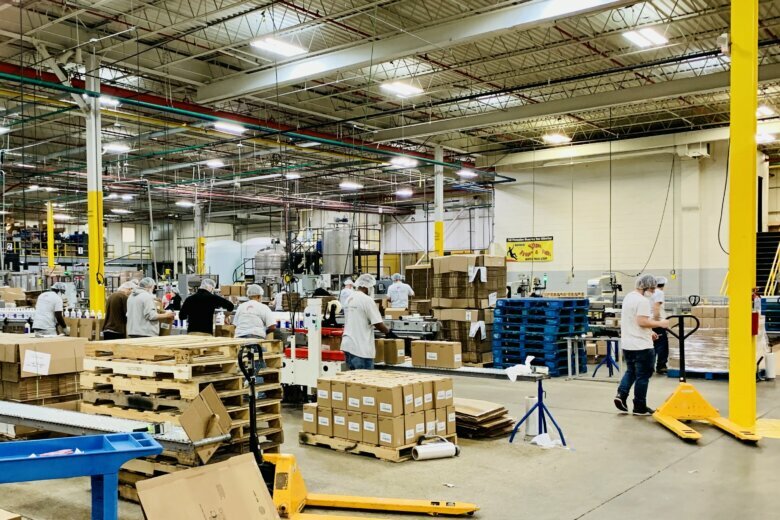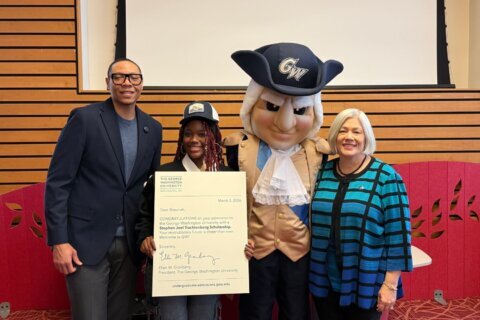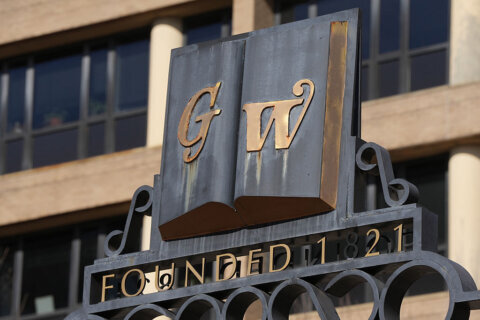

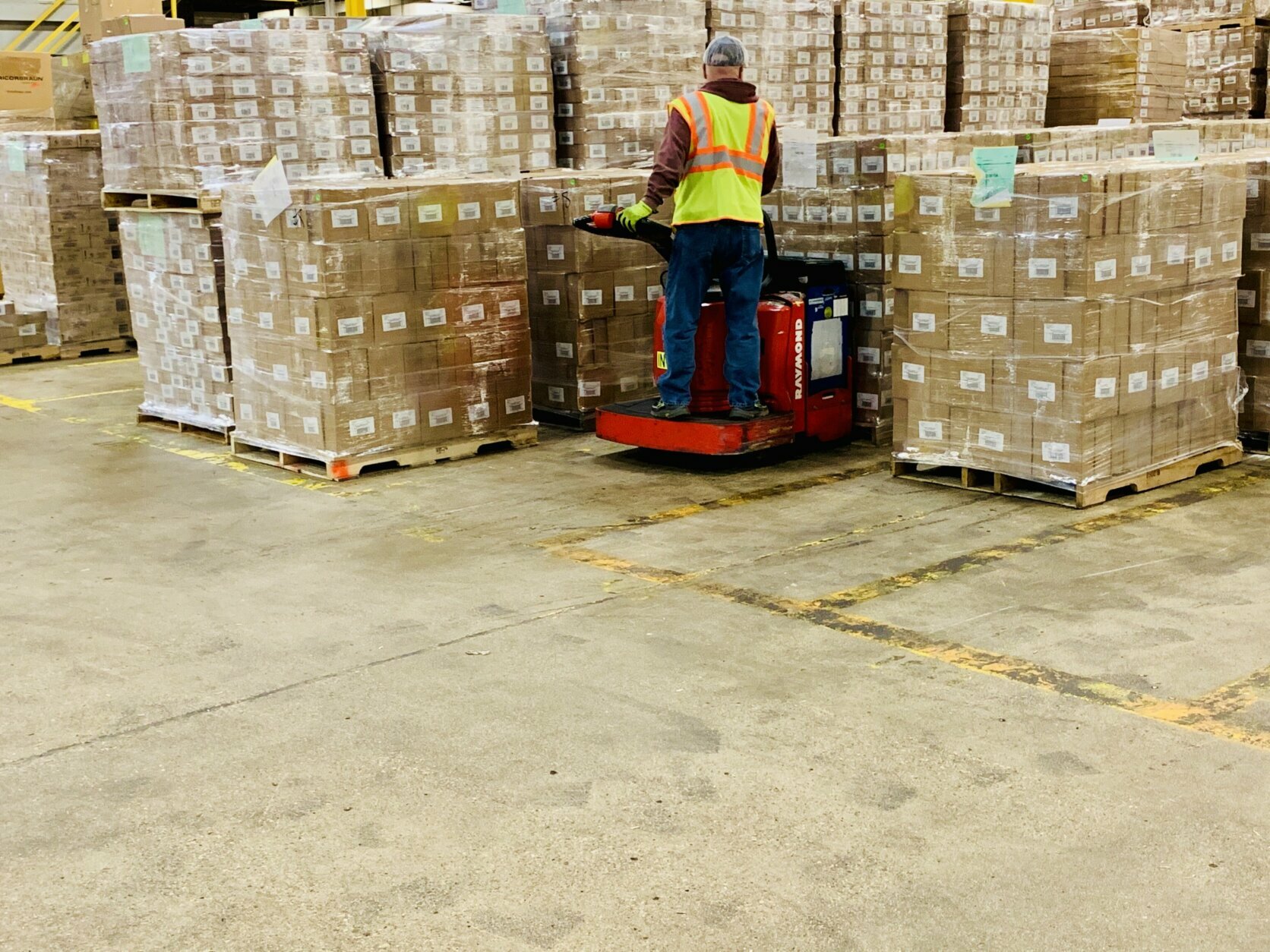
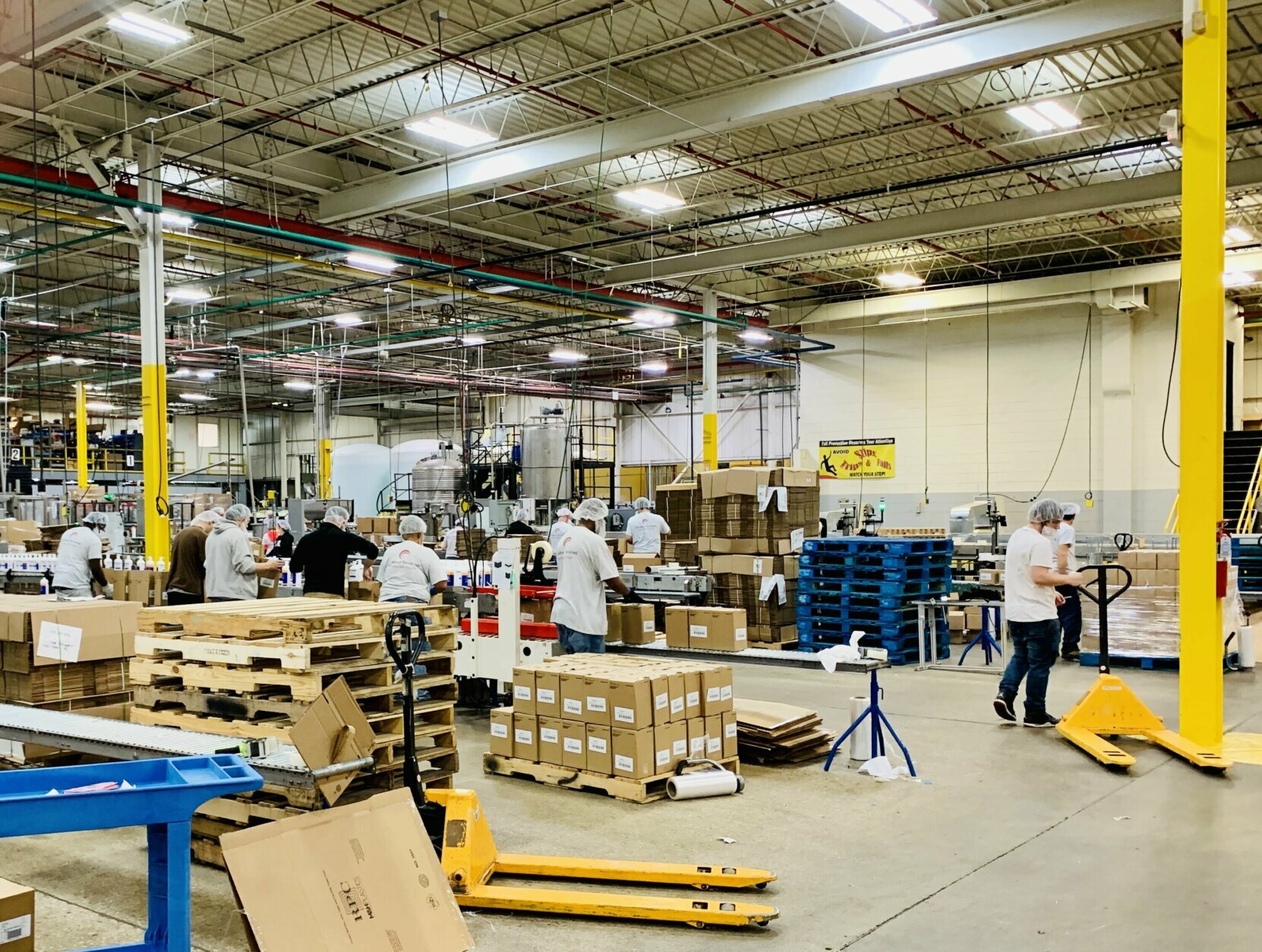

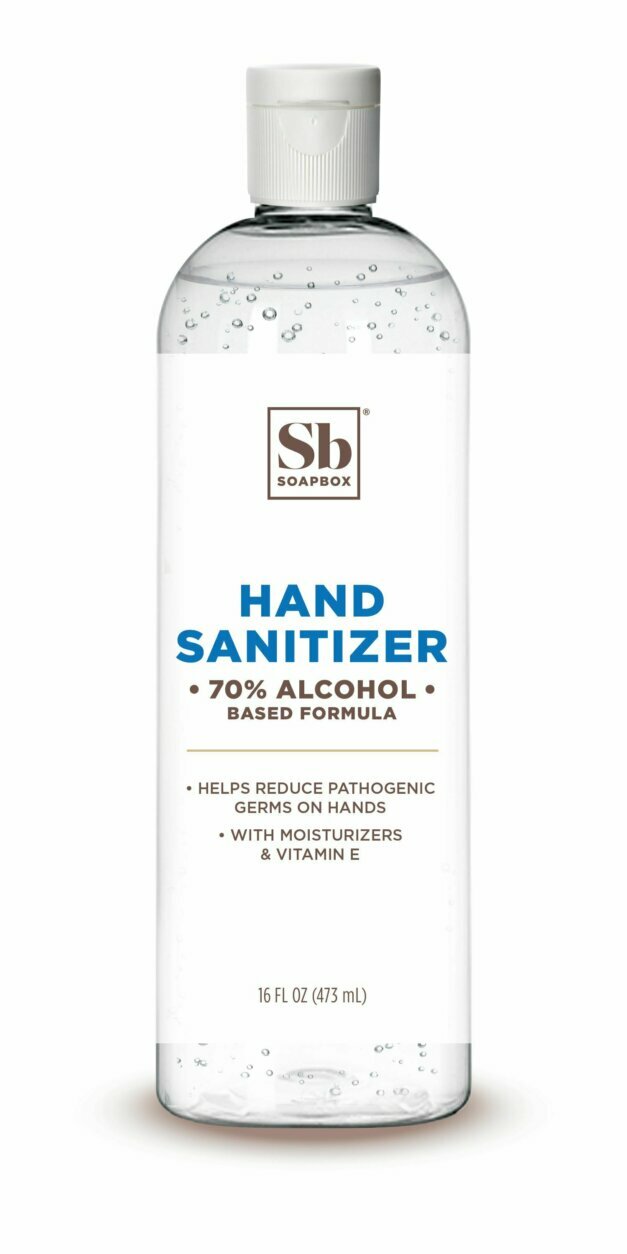
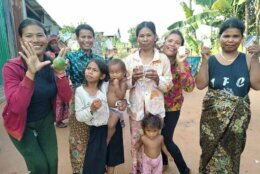

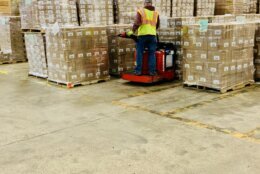
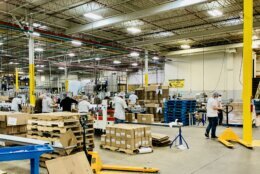
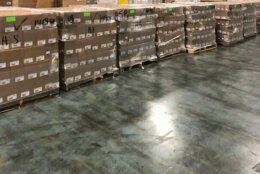
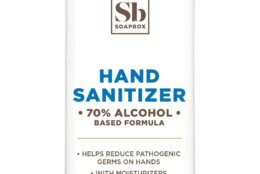
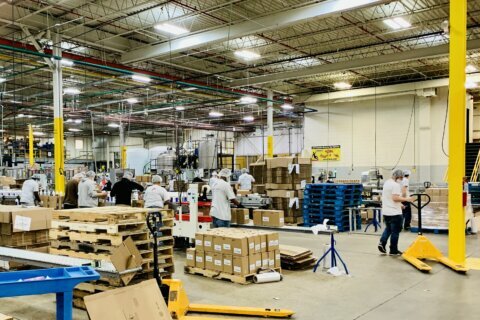
Before the coronavirus outbreak, Soapbox, a small shampoo and soap maker in Georgetown, would ship about 150,000 products a month to retailers near and far.
But since they’ve started getting requests to make hand sanitizer, that number has risen to 7 million.
“We had the formulation as well as the know-how in how to make it always in our product development pipeline, but we just moved it all forward and started making it now,” said David Simnick, CEO and co-founder of Soapbox.
Simnick helped start the company 10 years ago with business partner Daniel Doll.
Simnick, who previously worked for the United States Agency for International Development, made his first batch of soap in his college apartment kitchen while at American University.
Their focus is on health and hygiene and giving back to those in need. They currently have eight full-time employees but are working on adding more after the recent increase in demand.
“We’re a small company with a big heart is how we like to define ourselves,” Simnick said. “We’re hiring right now just to bring more and more people into our company to meet demand.”
In addition to selling recently selling 7 million units of hand sanitizer in four different factories, Soapbox is also donating that same number to organizations like Clean the World, Feeding America and Eco-Soap Bank to promote health and hygiene to those who can’t afford it or don’t have access.
“If there ever was a time for a one company whose focus is on health and hygiene to perform and step up, it’s now,” Simnick said.
The company makes 50% of their donations within the U.S. and 50% abroad.
Simnick said the messaging his company’s had from the start is very relatable to society right now.
“We’ve been telling people to wash their hands for over 20 seconds using the CDC method for over 10 years,” Simnick said.
Their products are in Walgreens, Wegmans, Rite-Aid, Harris Teeter, Stop & Shop, Giant and Martins. Additionally, Soapbox products are used by employees at Starbucks and several hospitals including Northwestern in Chicago and the New York Proton Center.
“Even with everything that has happened with our brand, we still wish this never happened because of the toll it’s taken on all of us, as well as you know, the real morbid toll that it has taken on a few,” Simnick said.

